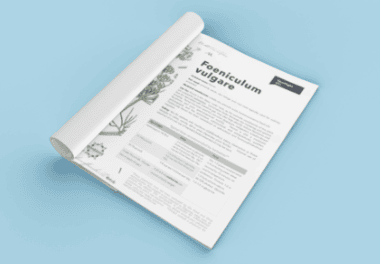Are you a provider?
Find research, practice management tips, resources and more for healthcare providers of all kinds.
Trusted information from licensed naturopathic physicians - experts in safe, natural medicine for kids.

Find research, practice management tips, resources and more for healthcare providers of all kinds.

Find articles, e-books, webinars, and a directory of naturopathic doctors to work with. For parents, grandparents, guardians and caregivers.

Subscribe to our newsletter and get a FREE digital copy of “Herbs for Fever and Pain: Natural Alternatives to Tylenol and Ibuprofen”

Looking for an e-book, webinar, charting template or other naturopathic goodie? Find all our digital products here.
Peppermint isn’t just a popular flavor for candy canes and tea—it has a long history of being used medicinally, especially for digestive issues. For families of children dealing with chronic tummy troubles like Irritable Bowel Syndrome (IBS), peppermint may offer a safe and natural option for re...
Are you a healthcare provider? Read our research summary of Petasites (Butterbur) on Naturopathic Pediatrics PRO, our website for professionals. If your child struggles with migraines, you’re not alone—and you may be wondering if there are natural, safe alternatives to conventional medications. ...
Fish oil, rich in omega-3 fatty acids like EPA and DHA, is gaining recognition for its potential to help manage asthma, especially in children. These healthy fats, found primarily in fish and seafood, have impressive anti-inflammatory properties, making them an excellent option for asthma treatment....
Valerian (Valeriana officinalis) has a long history of use in traditional medicine for a variety of conditions, notably its application as a sleep aid and treatment for anxiety. Today, its application has expanded to include attention deficit and hyperactivity syndromes, helping to calm and focus th...
Why is magnesium so important for children? Magnesium is an important mineral that serves as a cofactor for more than 300 enzymatic reactions in the body.1 Magnesium contributes to hundreds of ATP-requiring processes involved in metabolism, energy production, oxidative phosphorylation, and glycolysi...
What is L-theanine? Theanine, an amino acid primarily found in tea leaves, particularly Camellia sinensis, and some mushrooms, has garnered considerable attention in recent years for its potential health benefits. Structurally similar to glutamate, a neurotransmitter involved in brain function, thea...
What is Glutathione? Glutathione, often referred to as the “master antioxidant,” is a naturally occurring molecule found in the cells. Glutathione is a tripeptide, meaning it is made of three amino acids (cysteine, glutamine, and glycine). It is produced in the liver and plays a crucial ...
Urtica dioica, commonly referred to as stinging nettle, boasts a rich history of culinary, medicinal, clothing and ceremonial practices. Belonging to the Urticacea family, it is a perennial herbaceous plant native to Europe and Asia, now found in temperate regions worldwide and considered a weed in ...
The Timeless Appeal of Chamomile Chamomile, scientifically known as Matricaria chamomilla, is a widely used herb in traditional medicines around the world. Ancient Egyptian, Greek and Roman medical texts describe using chamomile as a calming tea infusion and for treating dry, weatherworn skin.1...
Mullein is a wonderful, abundant herb used for a number of children’s conditions. In this article we will explore the clinical research, safety and efficacy of Mullein (Verbascum thapsus) for use in children. Introduction Mullein, scientifically known as Verbascum thapsus, is a versatile flowe...
Are you a healthcare provider? Read our research summary on Probiotics and IBS and constipation on Naturopathic Pediatrics PRO, our website for professionals. Irritable Bowel Syndrome (IBS) and constipation are common gastrointestinal issues that can significantly impact the well-being of children. ...
Introduction to Echinacea in herbal medicine Have you ever strolled through the pharmacy section at your local grocery store and noticed cold and flu medications boasting echinacea as a key ingredient? While the flashy labels are clearly promising relief from stubborn bugs, you might be wondering: d...